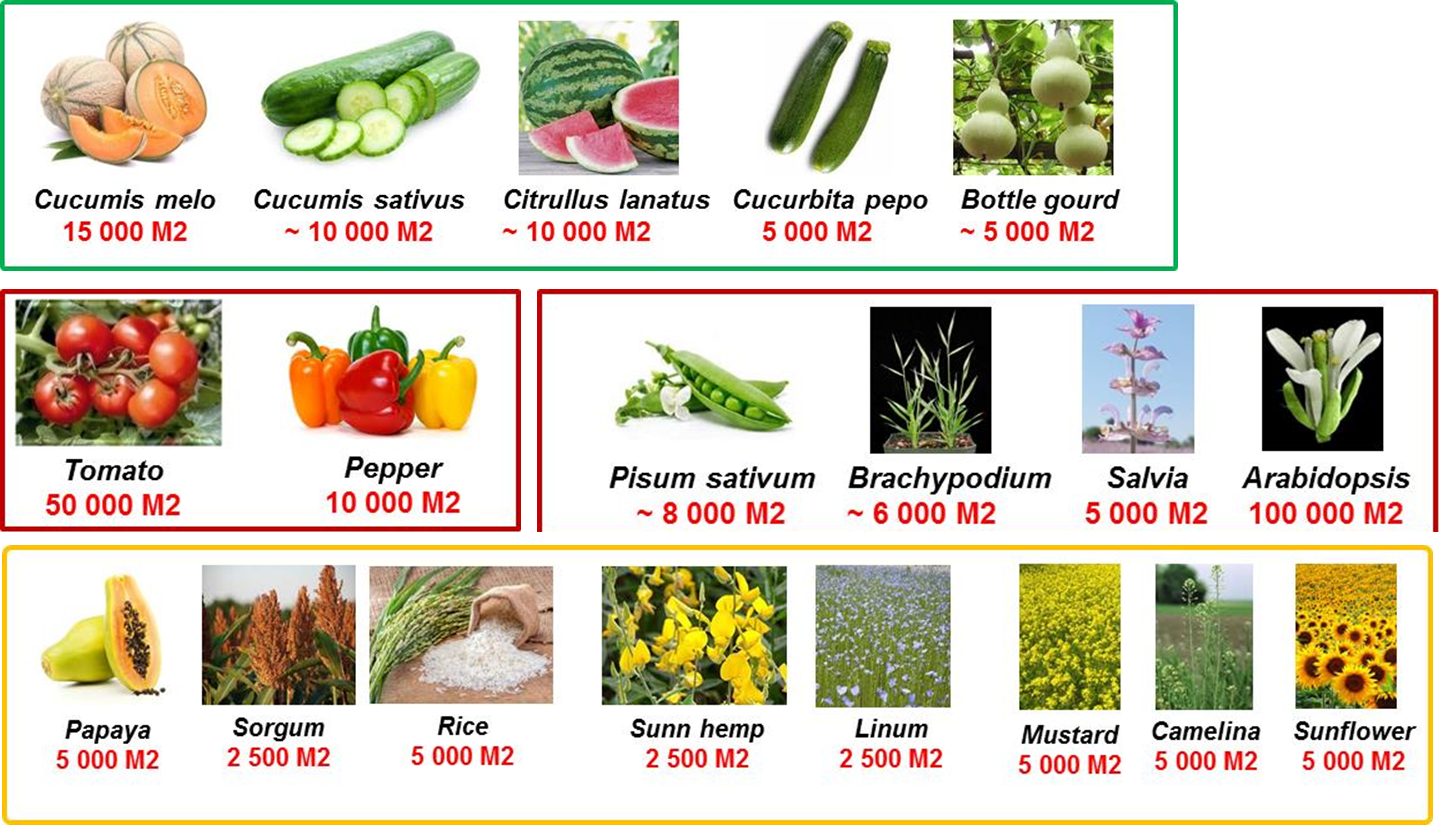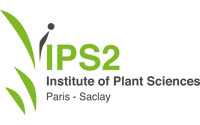Mutagenesis and mutant collections
Chemical mutagenesis based on an alkylating agents like ethylmethane sulfonate (EMS) provides an easy and cost-effective way to saturate a genome with mutations. EMS induce mainly G (guanine) alkylation that results in O6-ethylguanine formation which can pair with thymine (T) but not with cytosine (C). Through subsequent DNA repair, the original G/C pair can then be replaced with A (adenine)/T. At a low frequency, EMS generates G/C to C/G or G/C to T/A transversions by 7-ethylguanine hydrolysis or A/T to G/C transition by 3-ethyladenine pairing errors. Taking on consideration only the G:C to A:T transitions, in average, 71 to 81% of the amino acids of the proteins could be mutated.
EPITRANS platform exploits 19 species cooresponding to 260 000 M2 families: melon, cucumber, watermelon, bottle gourd, squash, pepper , tomato, pea, Brachypodium, Salvia, Arabidopsis, Papaya, Sorghum, rice, Sunn hemp, flax, mustard, Camelina and sunflower.

In addition to EMS mutagenesis we are also generating Fast Neutron mutant collection from melon, watermelon and tomato.
